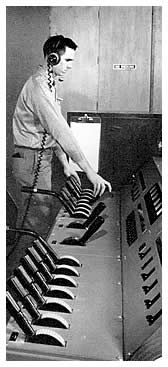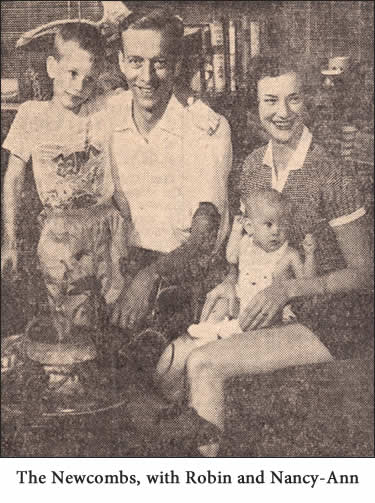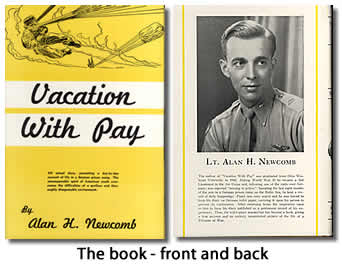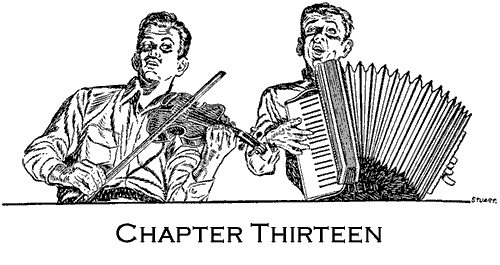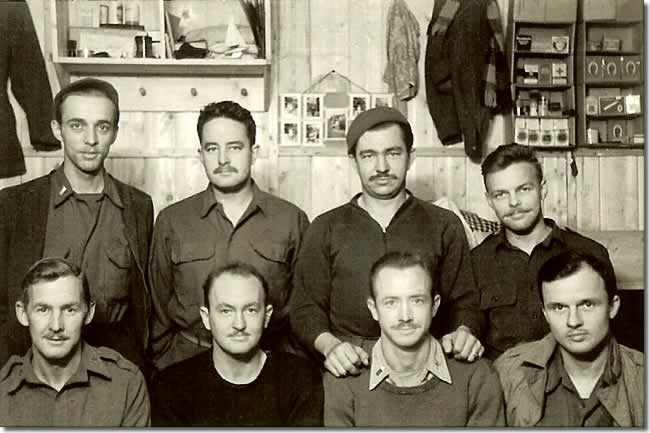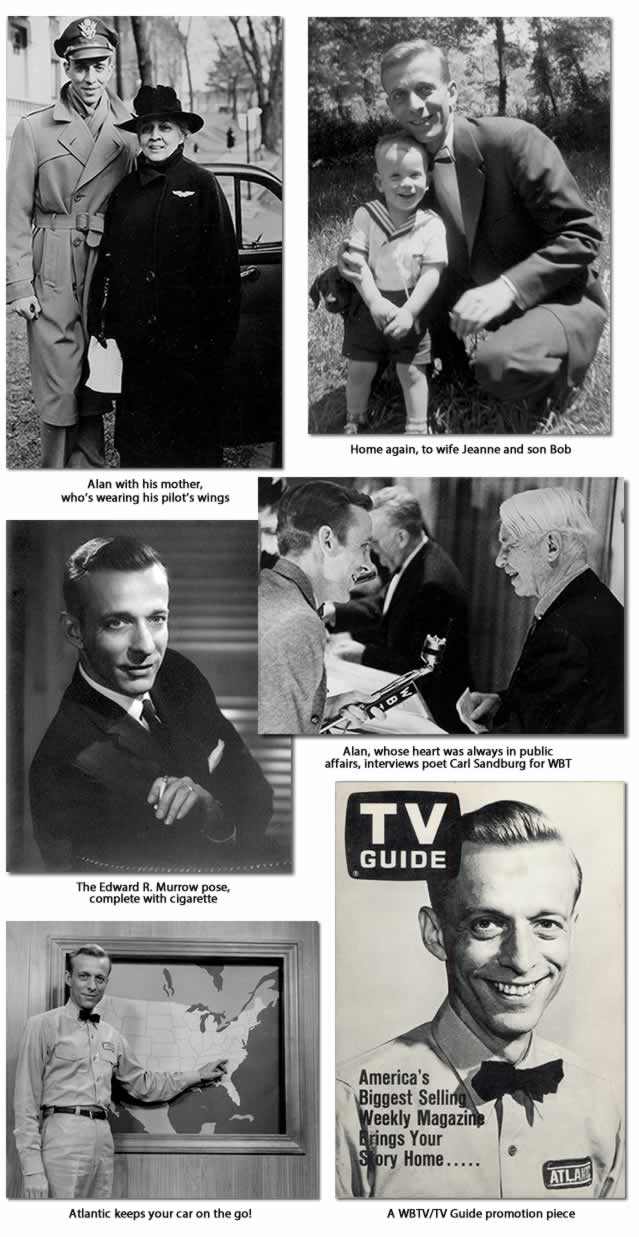The Charlotte News, Friday, October 21, 1966
Alan Newcomb, 45, Dies in Chicago
Alan Newcomb, public affairs director for WBT-WBTV here, died early today in a Chicago hospital of respiratory failure after surgery for a ruptured appendix.
Mr. Newcomb, 45, had been to Chicago to address the American Photo-Engravers National Convention. He collapsed at O'Hare Airport Wednesday while awaiting a plane to return to Charlotte. He lived in Matthews.
Mr. Newcomb, who had been active in radio and television in the Carolinas for 20 years, was with WBT for 15 years and had been public affairs director since 1962.
He was born in Cleveland, and was a 1942 graduate of Ohio Wesleyan University. He served in the U. S. Army Air Corps as a B-17 pilot in Europe during World War II. He was shot down twice and spent eight months in a German prisoner of war camp.
Mr. Newcomb was a man of tireless energy and spent many hours preparing his radio and television programs each week.
One of his best known television shows was "Land of the Free" which extolled the American way of life. His new TV show "This Day and Time", a current events discussion made its debut on WBTV last week.
Mr. Newcomb was the voice of "Editorial Opinion" which was broadcast on both WBT and WBTV. Many of the opinions he delivered he wrote himself.
Wallace J. Jorgenson, vice-president and assistant general manager of Jefferson Standard Broadcasting Co. which operates the two stations, said, "Alan's passing is not only a tremendous company and personal loss, but a loss as well to the people of Charlotte and the Carolinas. Working side by side with him has been a rich and rewarding experience for me personally and professionally."
"He was one of those rare individuals who possess many and varied talents. He had a quick mind, sound judgment and amazing perception, We will never be able to replace him in kind."
Thomas B. Cookerly, managing director of this station, said, "I don't know of anyone in broadcasting who was more respected professionally or well liked personally or well liked personally. He was one of the most brilliant and at the same time one of the warmest and most unaffected men I have ever known.
WTBV is planning a memorial program to be run during the evening hours one night next week.
During his years with WBT, Mr. Newcomb produced a nationally, syndicated radio show, "Radio Moscow," a commentary on Soviet propaganda which won him three national awards, including the Broadcast Journalism Award from Sigma Delta Chi professional journalism fraternity.
He served as a member of the Governor's Motor Vehicle Financial Responsibility and Compulsory Insurance Commission.
He was a member of the advisory board for Charlotte's education television station and taught a 200-member men's Bible class at First Methodist Church and was an active lay leader in the church.
He also was vice president of the Charlotte Executives Club.
James G. White, treasurer and business manager of the First Methodist Church, said, "No one had a bad thing to say about Alan Newcomb. The members of the J. Wilson Smith Bible Class worshiped him. He was always doing something for somebody."
"We won't be able to replace him here. We'll miss him very much."
George Ivey, Jr. president of the Charlotte Executives Club, said he had worked with Alan for two years.
"He was the club secretary when I was vice-president and he would have been president next year. He was a very efficient man, and a real great guy. I am greatly distressed to learn of his death."
Mr. Newcomb was in great demand as a public speaker. Local as well as out-of-state organizations frequently called on his services.
In one of the best-known speeches he urged his listeners to take the "happy road in life and look at things on the cheerful side rather than accenting the frustrations and disappointments."
In August, the Newcomb "Patchwork Farm" home in Matthews was feathered in the fall-winter edition at Home and Garden Remodeling Guide. Mr Newcomb and members of his family did most of the remodeling work and added a patio.
Mr. Newcomb is survived by his wife, the former Jeanne Lilly and two children, Nancy, 10 and Robert, 17. He is survived also by his mother, Mrs. Bertha Newcomb: and a sister, Mrs. Charles Rice, all of Candler.
Funeral arrangements are incomplete.
Reprinted with permission by The Charlotte Observer. Copyright owned by The Charlotte Observer.
